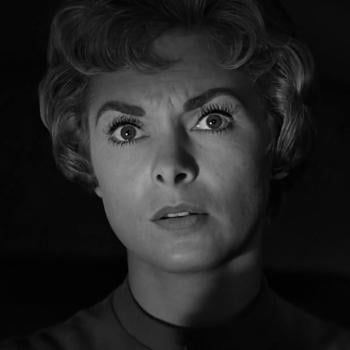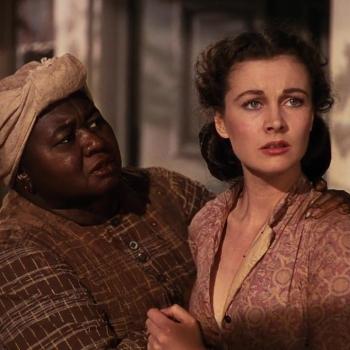
It’s a miracle that a movie like Scream ever landed on my list of favorite movies. It’s not only a horror film (I’m more of a musical guy myself), it’s also a self-aware horror film. Scream belongs to a special class of film that overtly comments on the genre to which it belongs. (Scream is to slasher films what Enchanted is to Disney fairy tales.) These movies aren’t impossible to do well, but more often than not, their incessant winking at the audience reads as patronizing, or else insecure. But Scream‘s metatextual commentary walks the line gracefully. It’s not only as scary as the films it overtly references, but it also uses the vocabulary of horror films to describe some genuinely insightful truths about the human search for agency in a world where our roles and endings feel written in stone.
Credit also goes to leading lady, Sidney Prescott, arguably my favorite leading character in a horror franchise. (I’ll acknowledge as much as I enjoyed Matt Bettinelli-Olpin and Tyler Gillett’s reboot of the franchise earlier this year, I haven’t decided whether I’ll see their follow-up next spring. The fact that the studio apparently didn’t think Neve Campbell was worth top dollar leaves a bit of a sour taste in my mouth.) The story follows Sidney Prescott coming up on the anniversary of her mother’s killing. When Sidney finds herself at the center of a game for a sadistic serial killer out to write a real-life scary movie, one in which Sidney is the star, she has to face her worst fears about herself and beat the killer at his own game.

At the center of Sidney’s story is a question of autonomy. Sidney seems fated for a certain kind of ending because she’s that kind of “character.” Her fight against the knife is itself a fight for control over her own story. Ghostface aims to take down Sidney by bending the “rules” of slasher films to turn her into its next victim. This film is especially fascinated by the way the genre treats its leading ladies, especially when it comes to their sexual behavior. According to the rules outlined by this film, “Only virgins can outsmart the killer.”
The sexual behavior championed in this film isn’t exactly Sunday school behavior, but the movie’s comment encompasses a lot more than a person’s individual attitude toward righteous sexuality. The real question is one of individual autonomy in a complex system–of agency in the realm of mortality. Are we fated for the endings written for our “characters,” or can we flip the script?

Sidney is fighting against not only a whole filmography of tropes, but also her own genealogy. Sidney’s own mother had a reputation for sleeping around, and Sidney fears that entertaining her own sexual development will cause her to meet the same fate, both devolving into promiscuity and meeting a similarly gruesome end. Sidney uses the term “bad seed” to describe her fear that her mother’s sins somehow define her own future.
We may be tempted to similarly believe that our own histories, or our own family histories, bind us to certain predestined ends that some offscreen audience can see coming from a mile away. But much like Sidney redefines the role of “the final girl” in a slasher film and thwarts the forces that try to kill her, we are free to act within our own sphere to write our own story.
Sidney learns to be honest about not only her mother (the third “Scream” installment graciously adds some context to the behavior and character of Sidney’s mother) but also her own developing identity. Making peace with certain parts of herself gives her the strength to decide what those pieces of herself mean. Likewise, honestly confronting our own proclivities and vulnerabilities helps us identify where we need fortifying.
Maybe we can’t always decide what movie we’re in, but we can control the role we play.

Dimension Films via “Metacritic”












